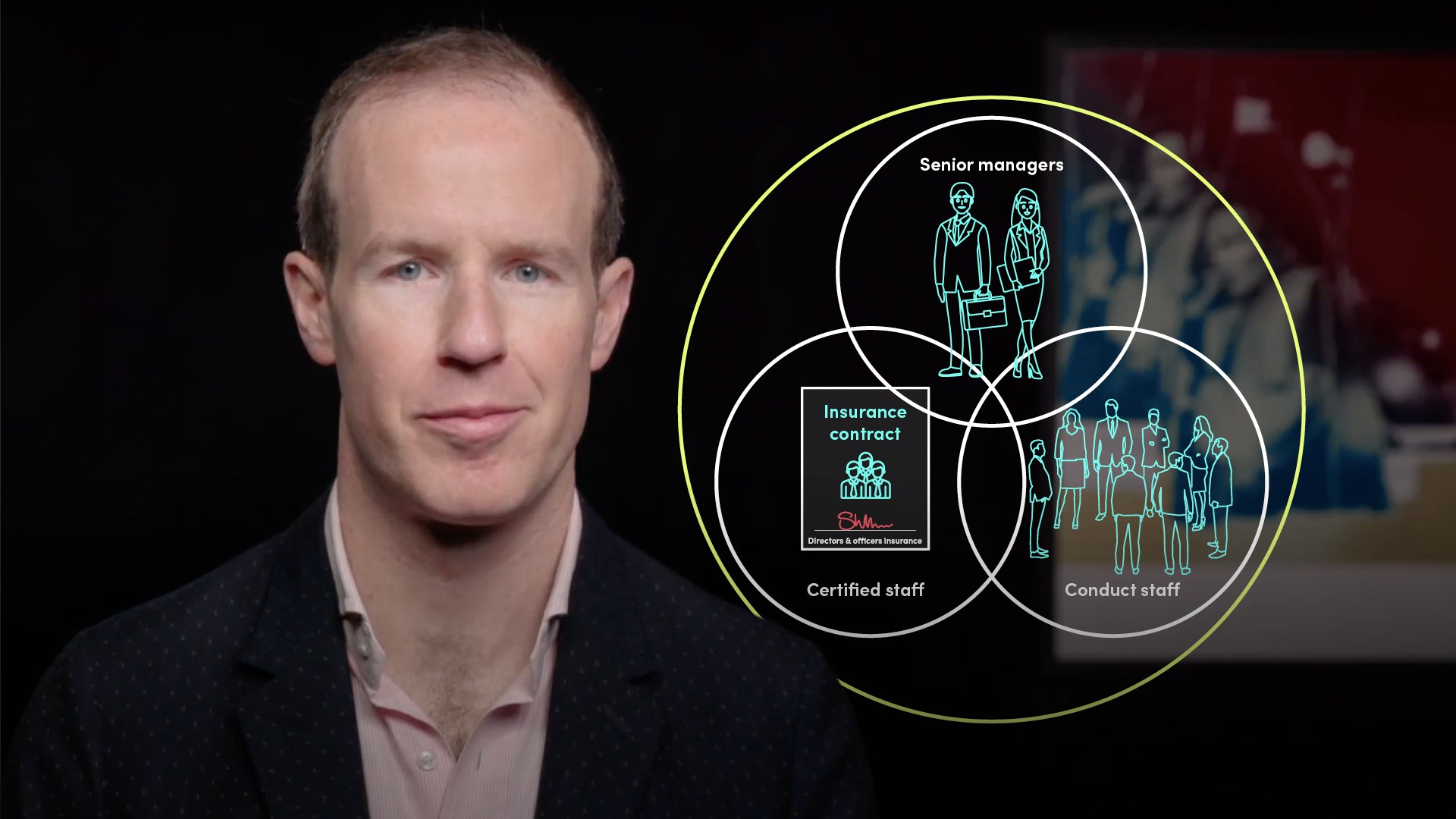
SMCR for Investment Firms

Stephen Stokes
20 years: Compliance & asset management
In this video, Stephen briefs us on UK's Senior Managers and Certification Regime, or “SMCR”, He runs through the background and genesis of the new rules, as well as key aspects of the new regimes and the Conduct Rules which now impact most of those working at investment firms. He finishes by speaking briefly about regulatory enforcement actions that the FCA has taken.
In this video, Stephen briefs us on UK's Senior Managers and Certification Regime, or “SMCR”, He runs through the background and genesis of the new rules, as well as key aspects of the new regimes and the Conduct Rules which now impact most of those working at investment firms. He finishes by speaking briefly about regulatory enforcement actions that the FCA has taken.
Subscribe to watch
Access this and all of the content on our platform by signing up for a 7-day free trial.

SMCR for Investment Firms
11 mins 51 secs
Key learning objectives:
Understand the background of the UK's Senior Managers and Certification Regime (SMCR)
Outline the five core objectives of the SMCR
Understand how SMCR applies to Senior Managers
Understand how SMCR applies to Certified Staff
Understand how SMCR applies to Conduct Staff
Outline the regulatory enforcement actions taken by the FCA
Overview:
Senior Managers and the Certification Regime or SMCR aims to reduce harm to consumers and strengthen market integrity by creating a system that enables firms and regulators to hold individuals to account.
Subscribe to watch
Access this and all of the content on our platform by signing up for a 7-day free trial.
What is the Senior Managers and Certification Regime (SMCR)?
The SMCR regime has its roots in the flurry of post-Global Financial Crisis rulemaking activity. The UK Parliament discussed the new rules for a long time before it passed legislation in December 2013. This was only implemented for banks in March 2016, for insurers in December 2018 and eventually for much of the rest of the industry in December 2019.
The new regime replaces the previous Approved Person regime under which the FCA pre-approved all individuals carrying out certain activities in firms. It aims to act as a “lever” to drive cultural change within organisations in the industry.
What are the core objectives of the SMCR?
- To restore consumer confidence in the financial services industry
- To increase individual accountability particularly at Senior Management level
- To ensure all firms and individuals can demonstrate where their responsibilities lie and put a greater emphasis on culture to mitigate risks of misconduct
- To reduce harm to consumers from their interaction with financial services firms and to strengthen market integrity
- To boost existing standards of governance and to constrain excessive credit and market risk-taking
How does SMCR apply to Senior Managers?
Senior managers are the most senior decision-makers in a firm; that is, those individuals with the greatest ability to inflict damage or effect on market integrity. Firms must now recognise these individuals; and apply to the FCA for pre-approval under one or more "Senior Management Functions."
The other key criteria are that every such Senior Manager needs a "Statement of Responsibility," a stand-alone document detailing what they are responsible for. The aim here is to avoid responsibilities falling through the gaps and ensuring that a regulator can identify the particular person in any given firm responsible for any activity in that firm.
Every Senior Manager is often subject to a legal duty of responsibility for which the Senior Manager responsible for a specific area of business may be held liable if he or she has not taken appropriate action to avoid or stop a breach.
What are some criticisms of SMCR?
- It is more appropriate in large, complex organisations
- Risks making smaller firms more hierarchical
- Statements of responsibility can be used to shield Senior Managers from accusations that they did anything less than take reasonable steps
- Responsibility does not exist in a vacuum
- There may be conflicts with concepts of chain of command
- The role of a CEO changes. In extremis, SMCR risks having all responsibilities pushed up the chain
- Tightens up requirements around regulatory references
How does SMCR apply to Certification Staff?
Certification staff have the potential to do serious damage to either the company, its clients or the reputation of the industry. In the past, these individuals would likely have been approved by the FCA, but they will now be "certified" initially and periodically by the firm itself to ensure that they are, and remain, "fit and proper."
What are the conduct rules by the FCA?
- Act with integrity
- Act with due skill, care and diligence
- Must be open and cooperative with the FCA, the PRA and other regulators
- Must pay due regard to the interests of customers and treat them fairly
- Must observe proper standards of market conduct
What other rules are senior managers subjected to?
- Take reasonable steps to ensure that the business of the firm for which you are responsible is controlled effectively
- Take reasonable steps to ensure that the business of the firm for which you are responsible complies with the relevant requirements and standards of the regulatory system
- Take reasonable steps to ensure that any delegation of your responsibilities is to an appropriate person and that you oversee the discharge of the delegated responsibility effectively
- Appropriately disclose any information of which the FCA or the PRA would reasonably expect notice
What are the regulatory enforcement actions taken by the FCA?
The CEO of Barclays was fined a total of 642 thousand pounds and forced to repay 500 thousand pounds in bonuses for failing to behave with proper ability, care and diligence. He breached Conduct Rule 2 in the way he acted in response to an anonymous letter received by Barclays in June 2016, which claimed to be from a Barclays shareholder.
Subscribe to watch
Access this and all of the content on our platform by signing up for a 7-day free trial.

Stephen Stokes
There are no available Videos from "Stephen Stokes"



























